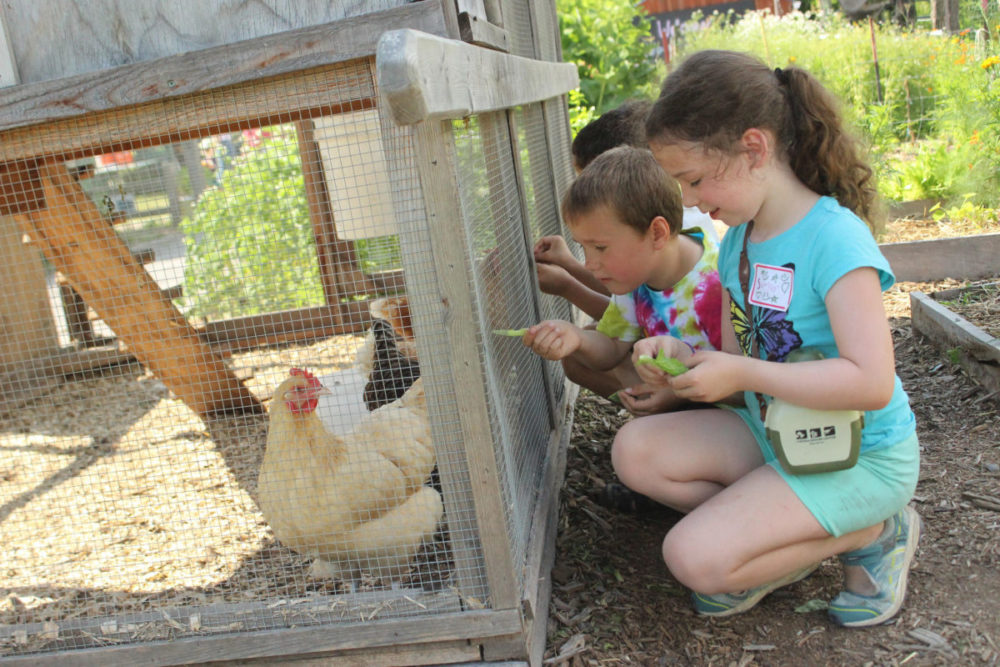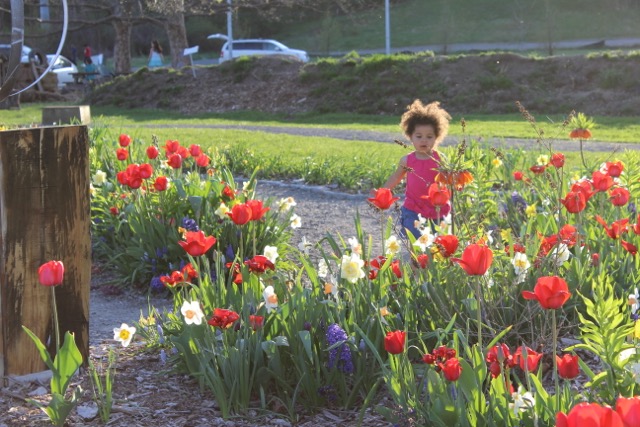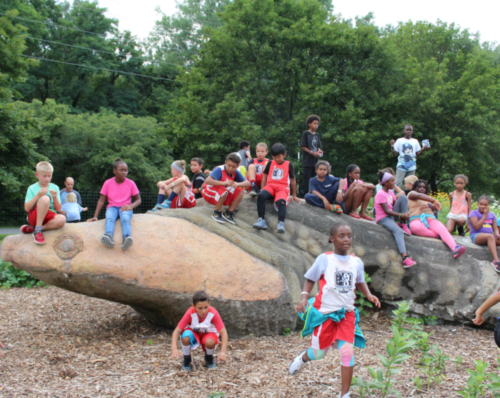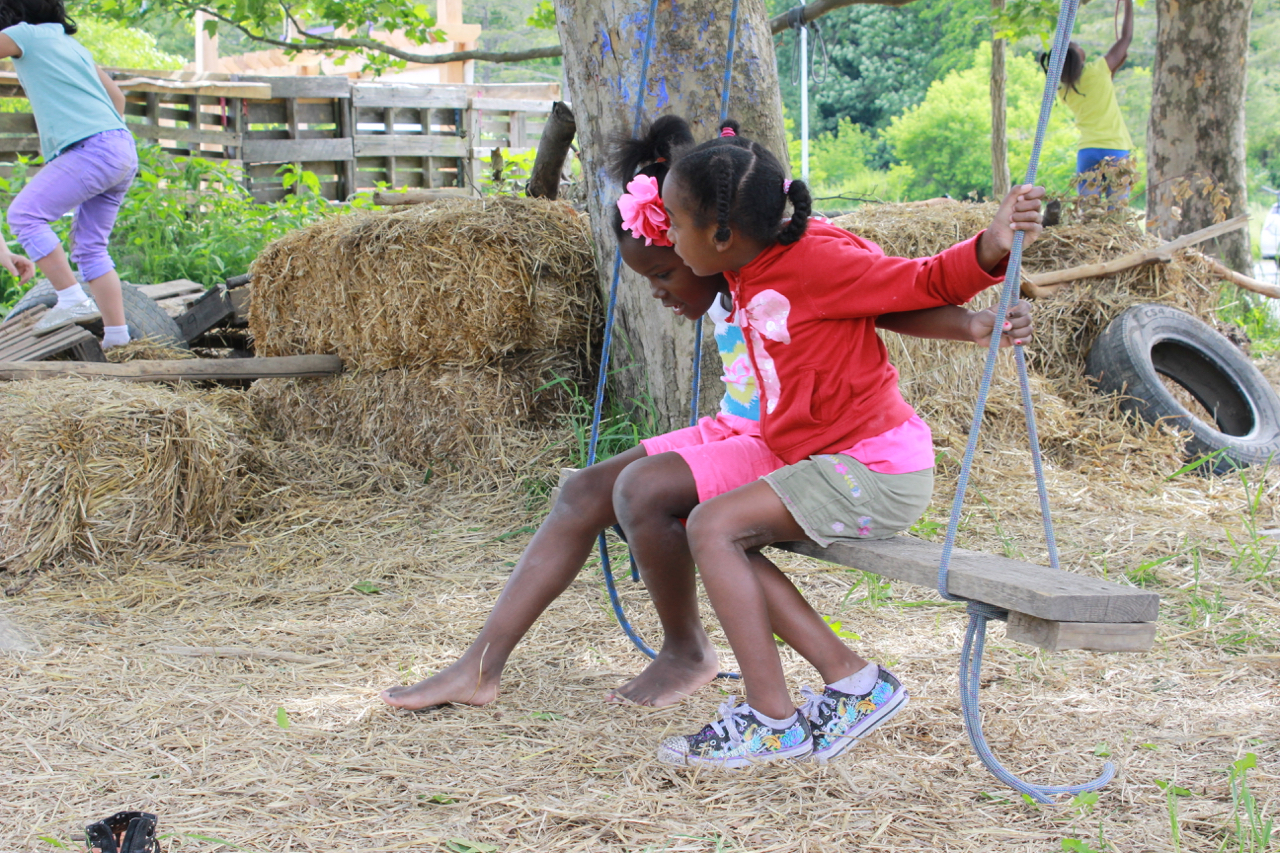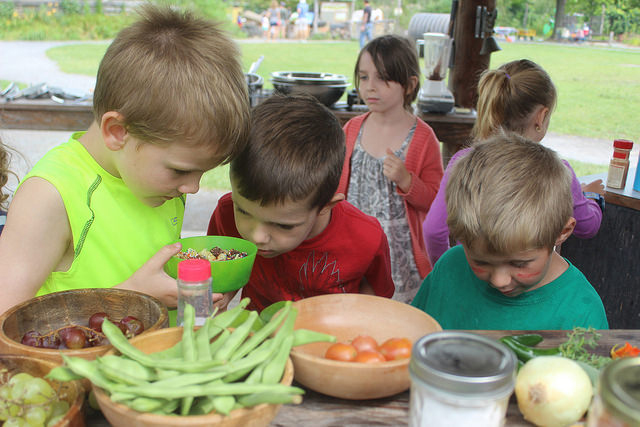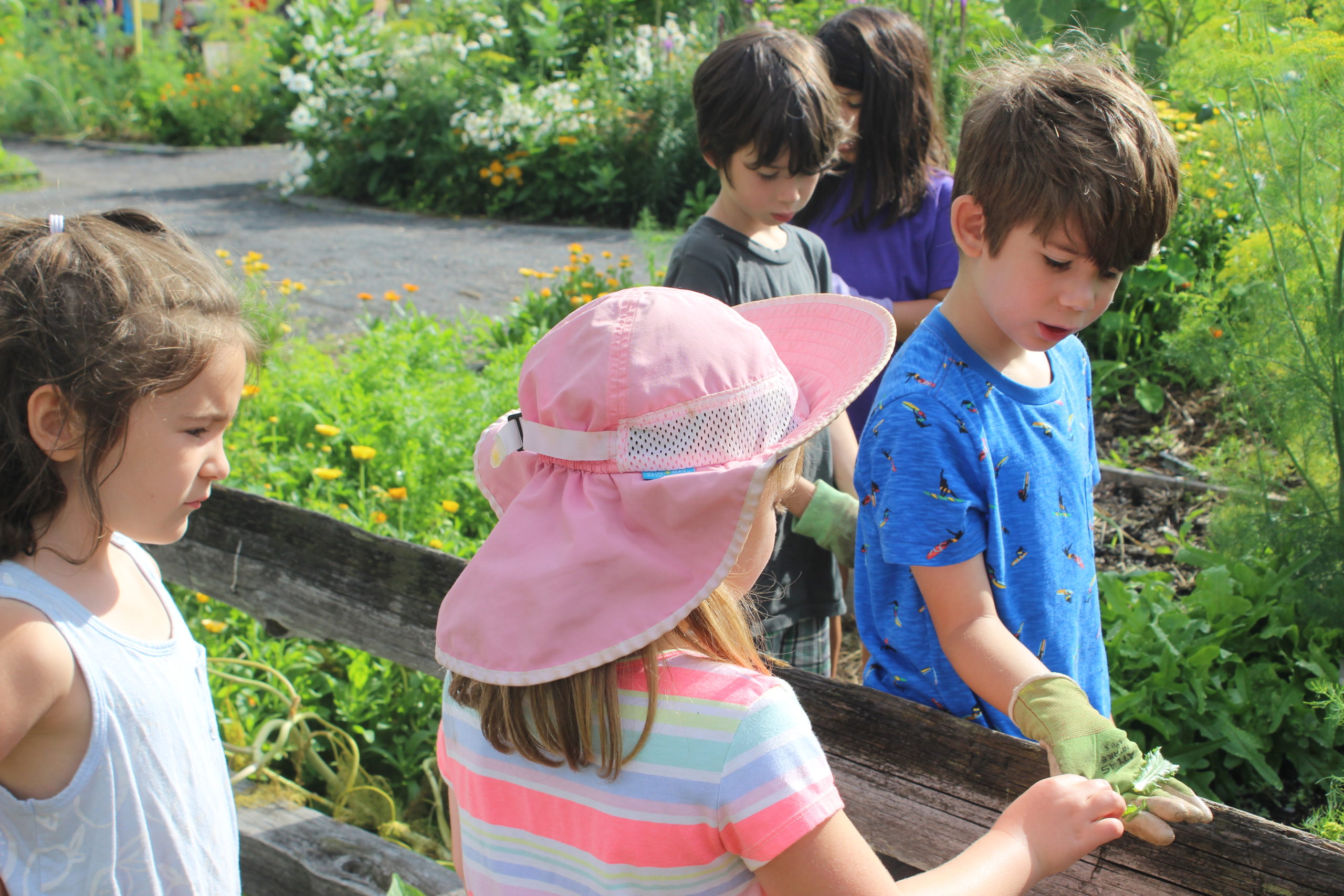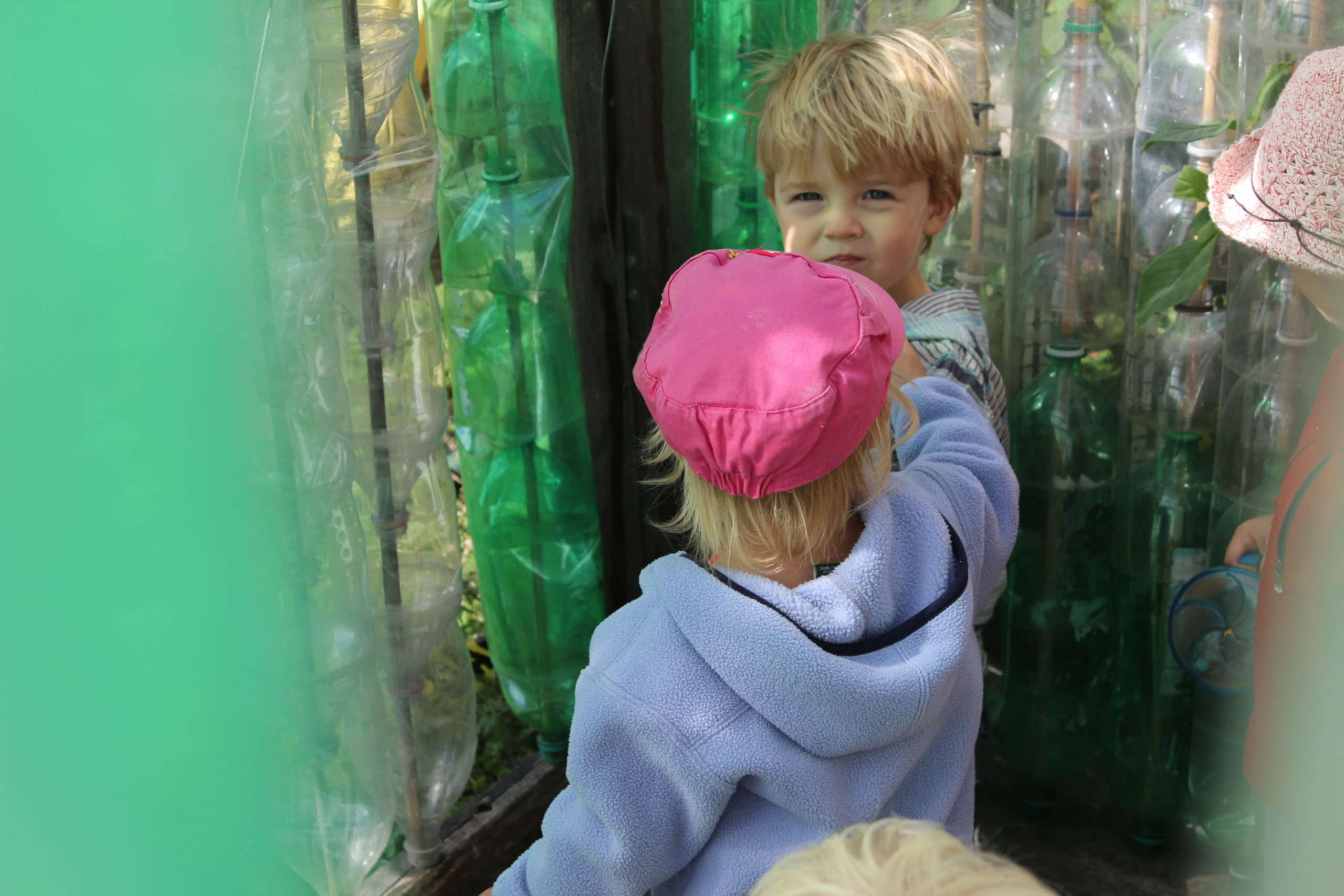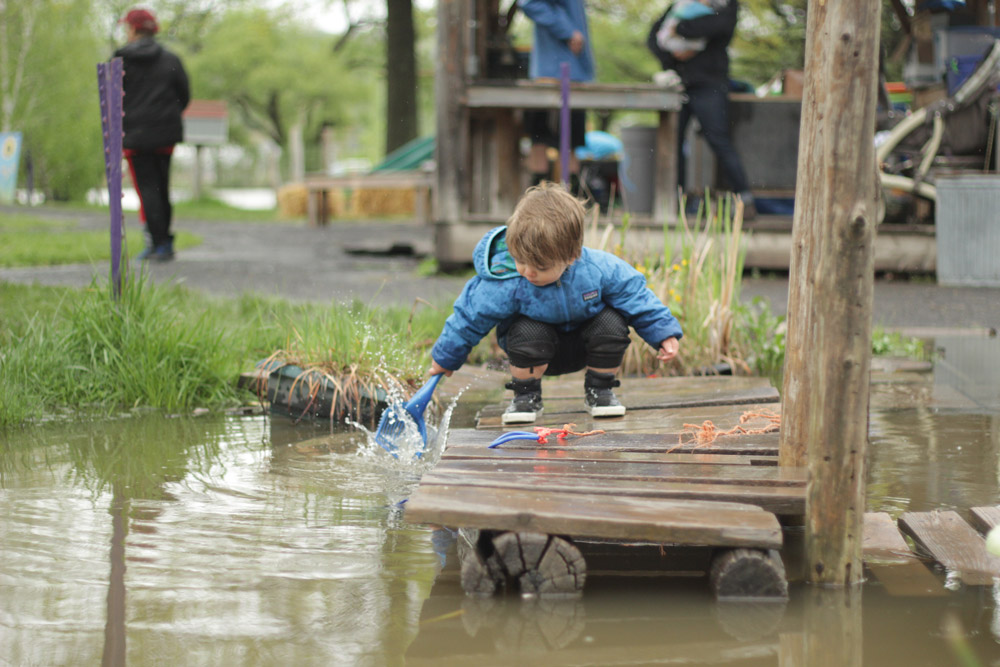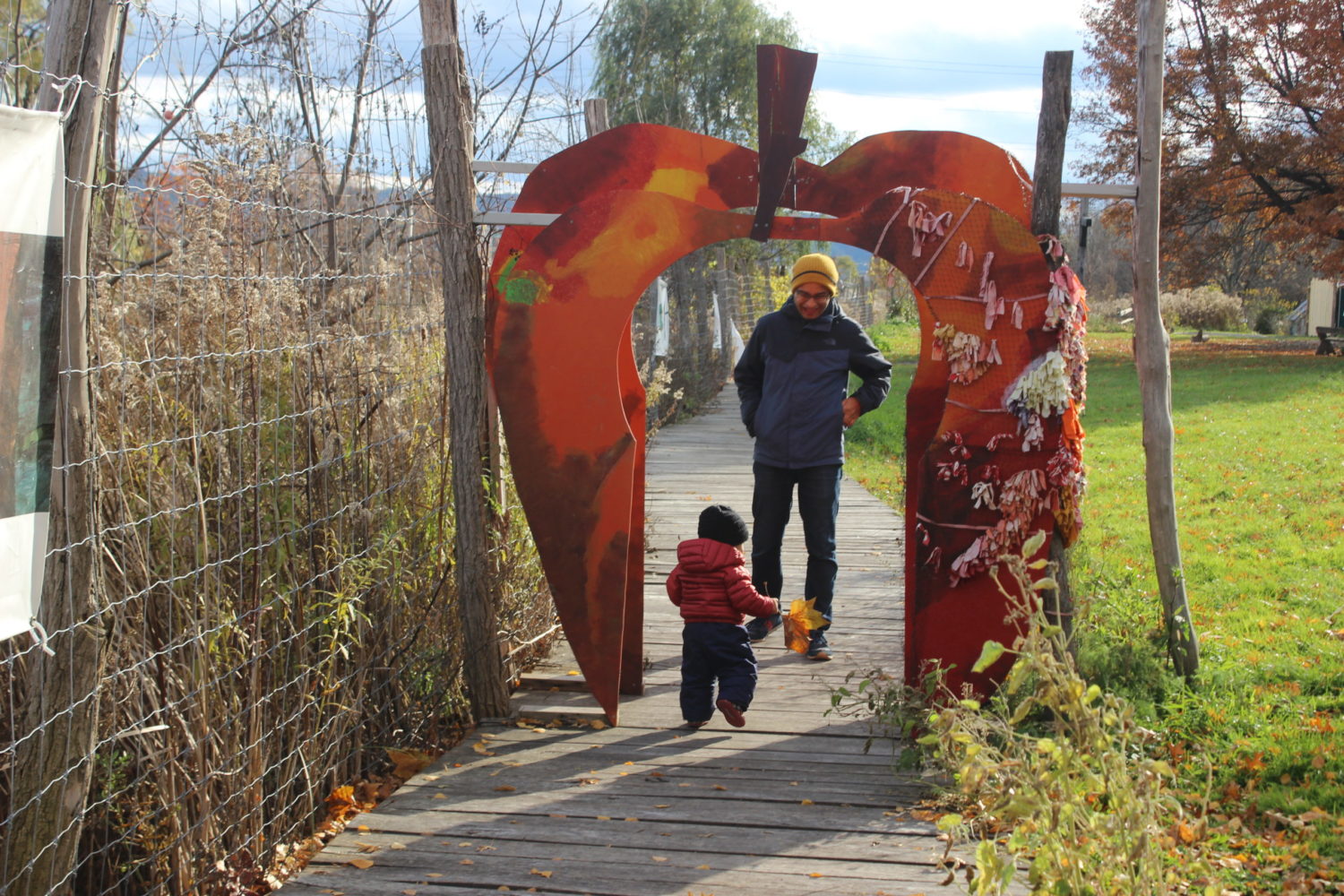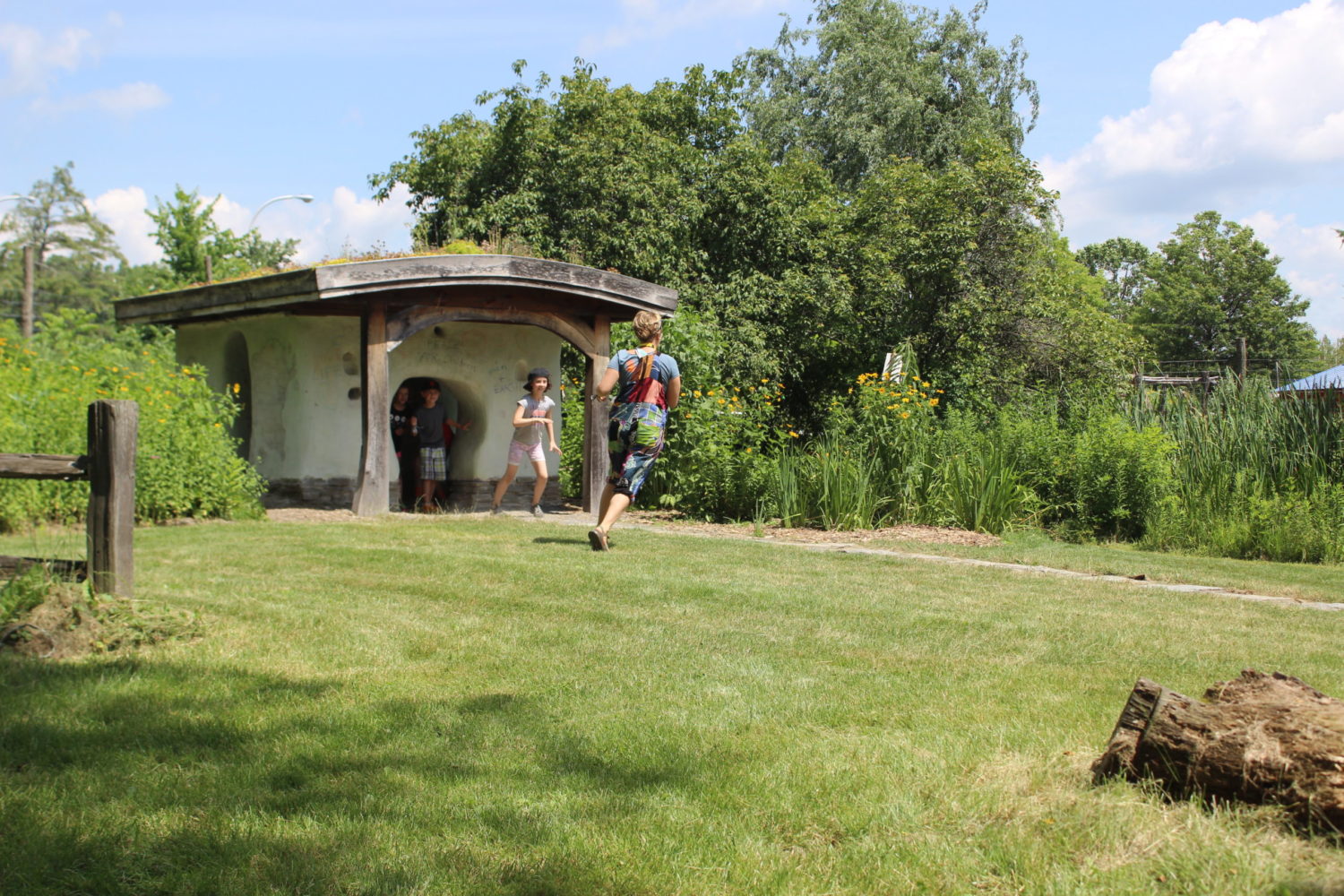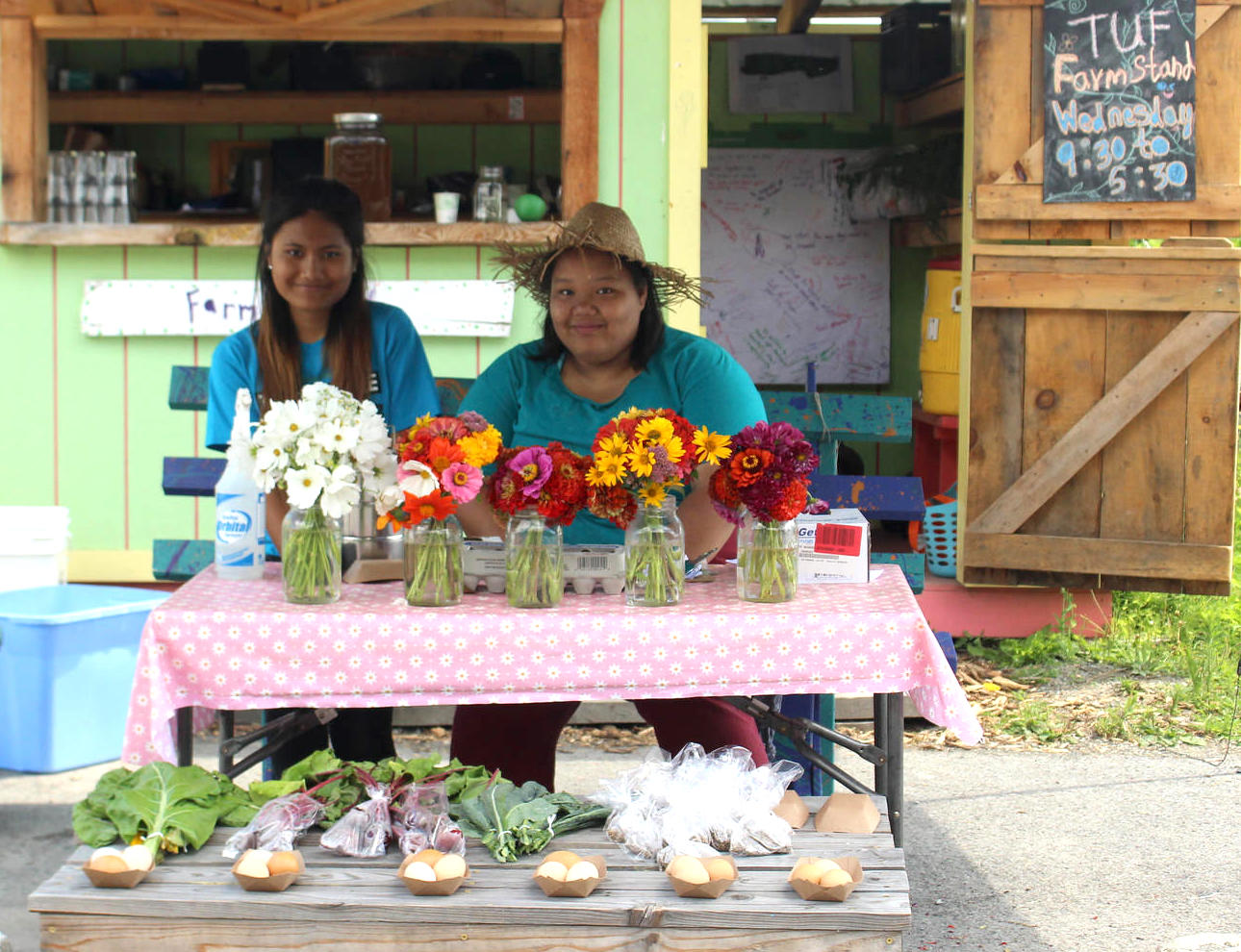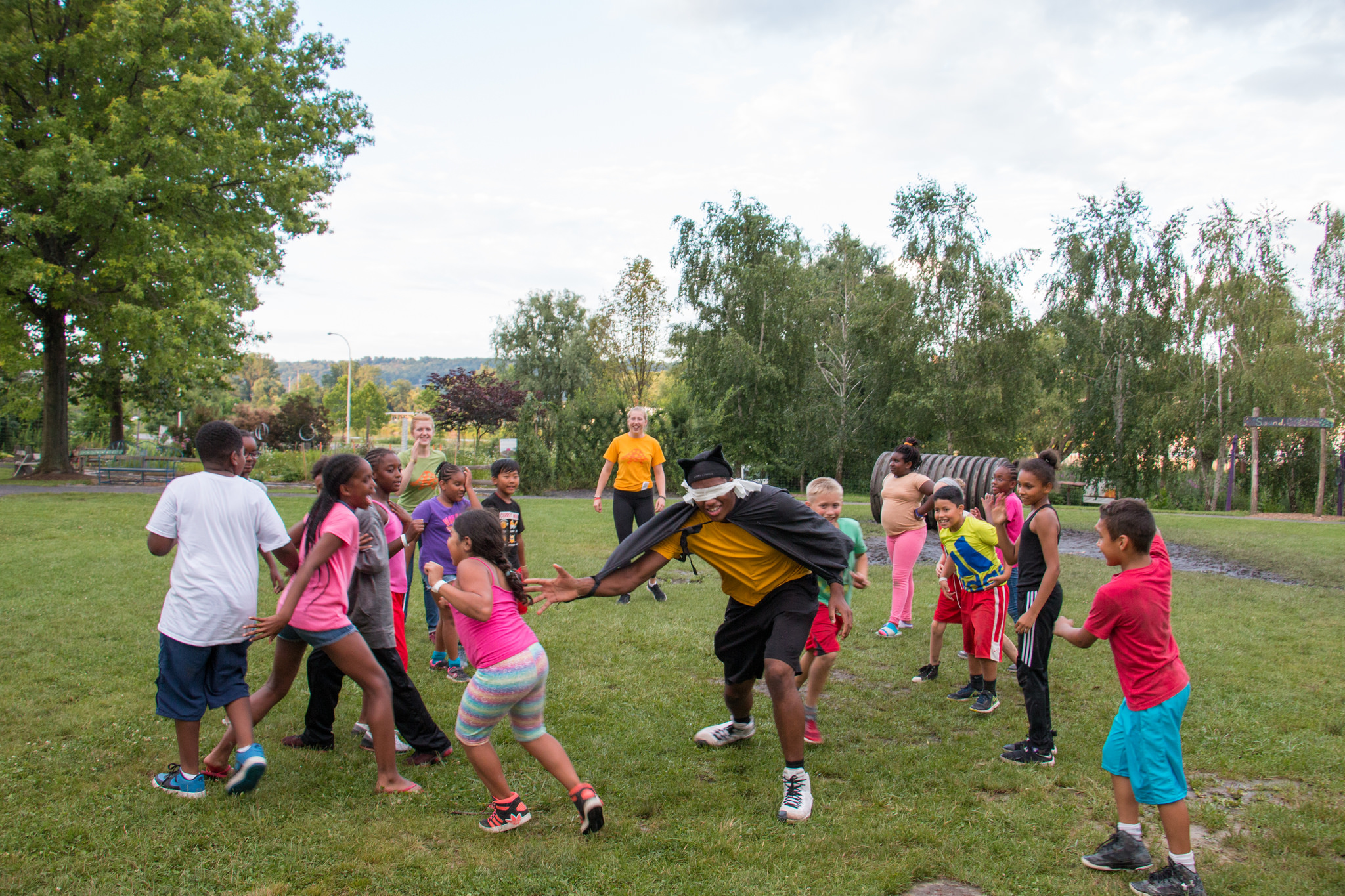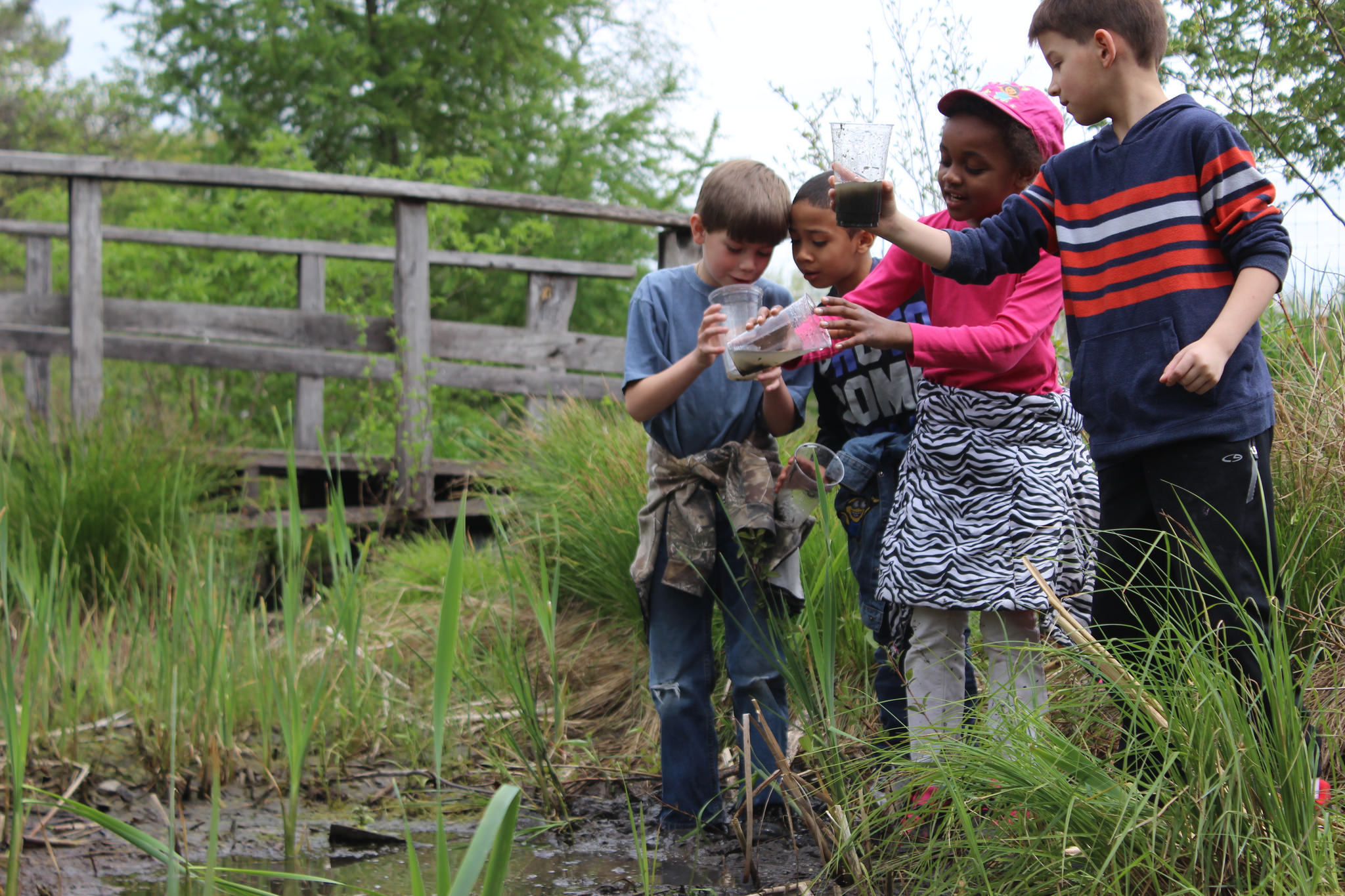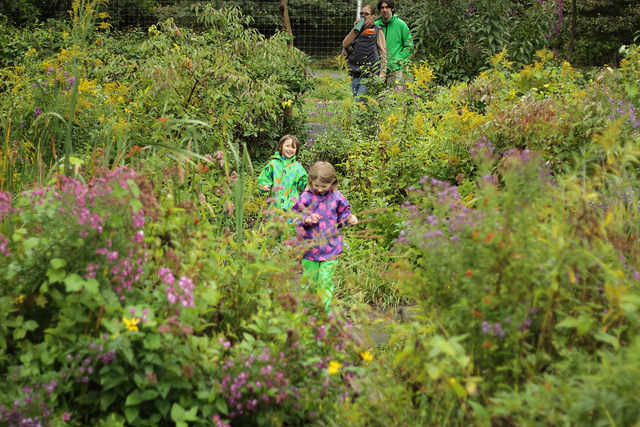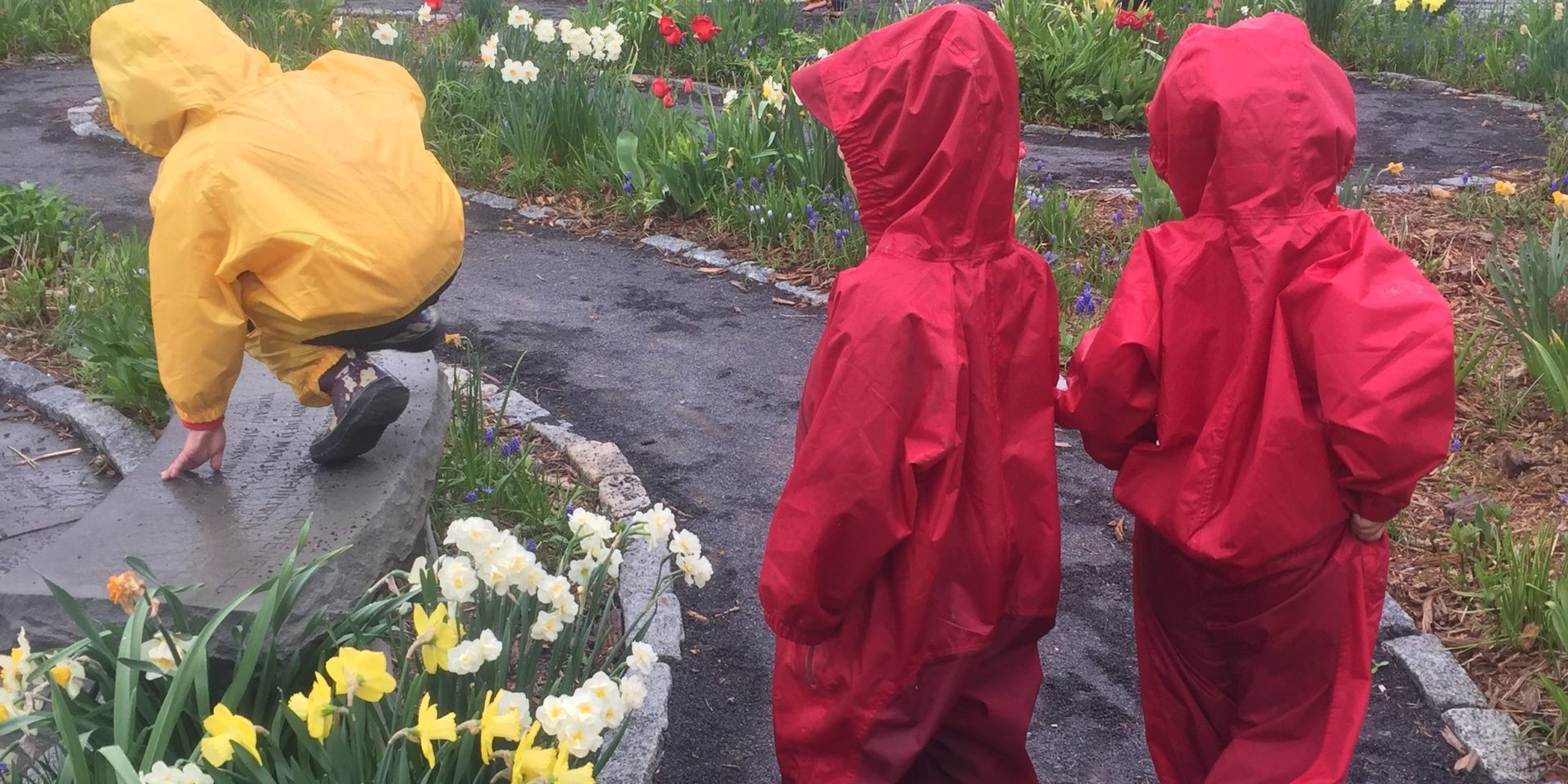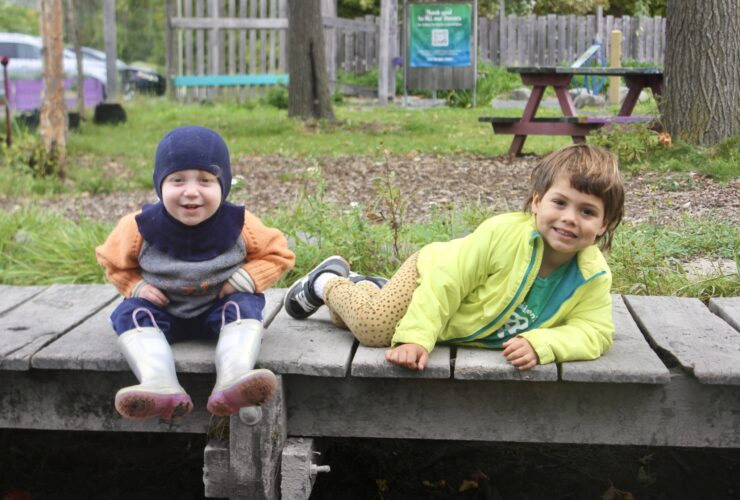Learning Comes Naturally For These BJM Students
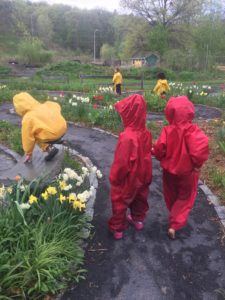
The ICG team has always believed that the Garden is the perfect place for young learning. When ICG’s Executive Director, Erin Marteal, and AmeriCoprs VISTA member, Tori Chamberlain, sat down with Priscilla Reyer, this belief was glowingly reinforced. At the time of the interview, Priscilla was a pre-k teacher at Beverly J. Martin Elementary School in Ithaca who has utilized the Garden as a space to enhance and facilitate her student’s educational experience. She has since moved to into a teaching position at South Hill Elementary.
Priscilla and her class of 16 children visited the Garden weekly last year. The children found excitement in every space of the Garden and could hardly wait to get off the bus each time they arrived. They watered plants in the Kitchen Garden, tested out their creativity and motor skills in the Hands On Nature Anarchy Zone, watched in awe as flowers burst forth in the Bulb Labyrinth Memorial Garden, and spent hours with the noisemakers in the Sound Garden.
The Garden was an accessible outlet for the creative energy of the young group, but the lessons the class learned at the Garden were larger than just the importance of time outside. Priscilla stressed the academic value of the class time at ICG that allowed their curiosity to guide their learning, saying that her students have “excelled academically” in the context of the Garden and in the classroom. “They’re little scientists. From week to week the tadpoles were growing and they were showing me how they were growing.”
While a common concern around unstructured playwork is that it is dangerous for children, Priscilla’s adventurous class did not run into any issues. “No one has gotten hurt. They’re taking risks, and they’re calculating [those risks]. If they don’t understand something, they’ll come to an adult and ask. They’re taking calculated risks.”
The Hands On Nature Anarchy Zone was an area in particular where the children navigated these calculated risks. The class loved the mud and natural elements here almost as much as they loved the spare parts and materials strewn about, which they could use to make anything they imagined. Priscilla loved how much autonomy the space gave the children and how it expanded their relationship to play. The children commonly asked Priscilla, “we can play with this?” which she met with the beautiful response: “of course we can play with this!”
Getting to the Garden was not an easy feat because of limited funding from the school and the inability to walk children to the Garden as the journey involves crossing a major roadway. But Priscilla believed firmly in the importance of cultivating a unique and environmental based education for her students. She fundraised on her own and incorporated funds from Donors Choose to help make these field trips happen. She obtained a “whole bunch of rainsuits” and didn’t let weather stop the children from accessing the outdoors. “We are out every day, except when it’s negative 18. They were all happy. [There is] no bad weather, only bad clothes.”
Speaking with Priscilla exposed the ICG team to some of the barriers that exist for educators and children alike in accessing outdoor play and education. Teachers today often feel that they don’t have enough time or autonomy to prioritize outdoor or free play time. Even if they do feel they have time or recognize the developmental importance of playwork, they lack the resources to access spaces like ICG on a regular basis. These insights have inspired ICG to bolster efforts to educate, engage, and empower educators about the importance of playwork and how ICG can be accessible to their classes.


